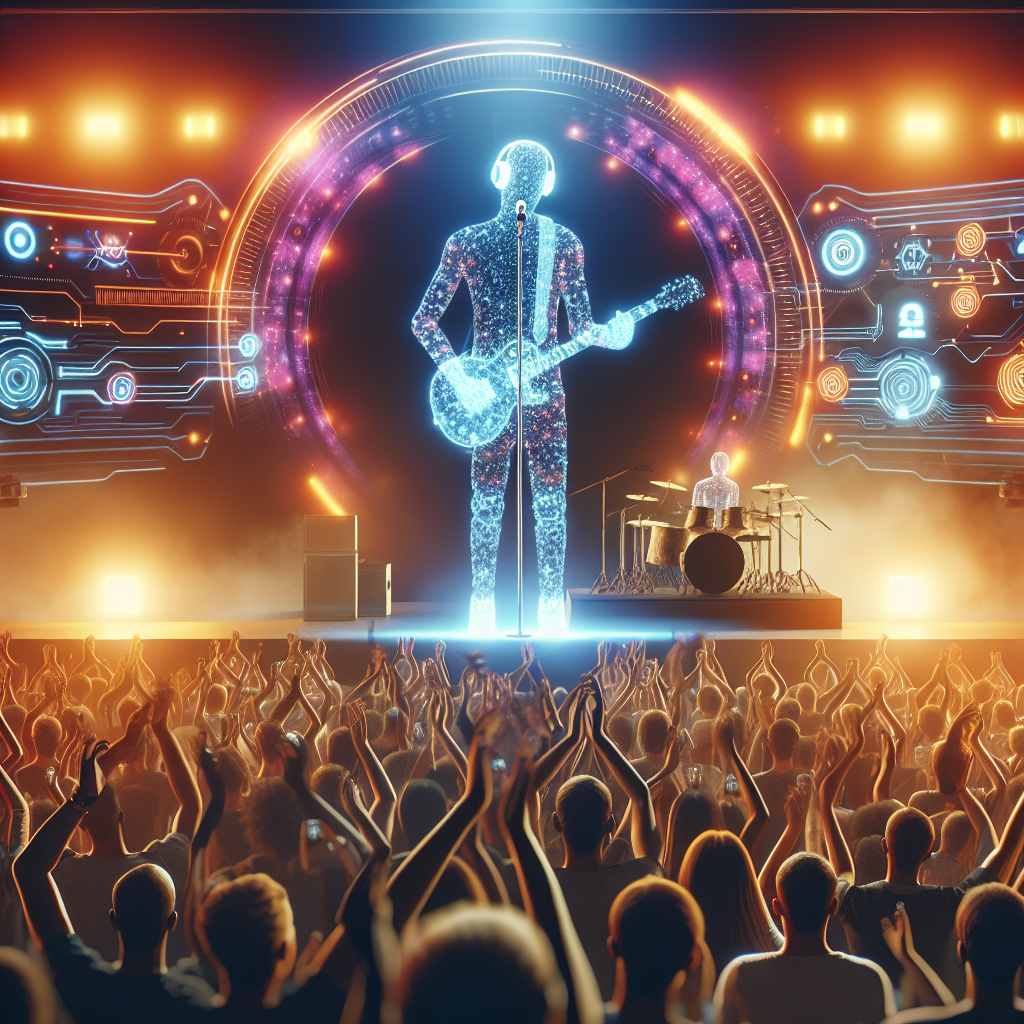Artificial Intelligence (AI) has been making waves in various industries, and the music industry is no exception. In recent years, AI technology has started to be integrated into live music performances, enhancing both the experience for the audience and the performance itself. From AI-generated music to AI-powered visual effects, the possibilities for AI in live music are endless.
Enhancing Performances with AI
One of the ways AI is being used to enhance live music performances is through AI-generated music. Musicians and composers are now able to use AI algorithms to generate music in real-time, creating unique and dynamic performances that would not be possible without AI. These AI-generated music systems can respond to the mood and energy of the performance, creating a truly immersive experience for the audience.
AI is also being used to enhance the visual elements of live music performances. AI-powered visual effects can be synchronized with the music, creating stunning visual displays that add another layer of excitement to the performance. These visual effects can range from simple light shows to complex projections and animations that react in real-time to the music being played.
Another way AI is being used to enhance live music performances is through AI-powered instruments. These instruments use AI algorithms to analyze and manipulate sound in real-time, creating new and unique sounds that push the boundaries of traditional music. AI-powered instruments can be used in collaboration with traditional instruments, adding a modern twist to classic performances.
Audience Engagement with AI
In addition to enhancing performances, AI is also being used to enhance audience engagement at live music events. One way AI is being used to engage audiences is through personalized recommendations. AI algorithms can analyze a listener’s music preferences and recommend songs and artists that they may enjoy, creating a more tailored experience for each individual.
AI is also being used to create interactive experiences for audiences at live music events. For example, AI-powered chatbots can interact with audience members, answering questions and providing information about the performance. AI can also be used to create interactive games and activities that engage the audience and create a more immersive experience.
FAQs:
Q: How does AI-generated music work?
A: AI-generated music works by using algorithms to analyze existing music and create new compositions based on that analysis. The AI can generate melodies, harmonies, and rhythms in real-time, creating unique and dynamic music performances.
Q: Can AI-powered instruments replace traditional instruments?
A: While AI-powered instruments can create new and unique sounds, they are not meant to replace traditional instruments. Instead, AI-powered instruments are meant to complement traditional instruments and push the boundaries of music creation.
Q: How does AI enhance audience engagement at live music events?
A: AI can enhance audience engagement at live music events by providing personalized recommendations, creating interactive experiences, and interacting with the audience through chatbots and other technologies. This creates a more tailored and immersive experience for the audience.
In conclusion, AI is revolutionizing the live music industry by enhancing performances and engaging audiences in new and exciting ways. From AI-generated music to AI-powered visual effects, the possibilities for AI in live music are endless. As AI technology continues to evolve, we can expect to see even more innovative uses of AI in live music performances in the future.

